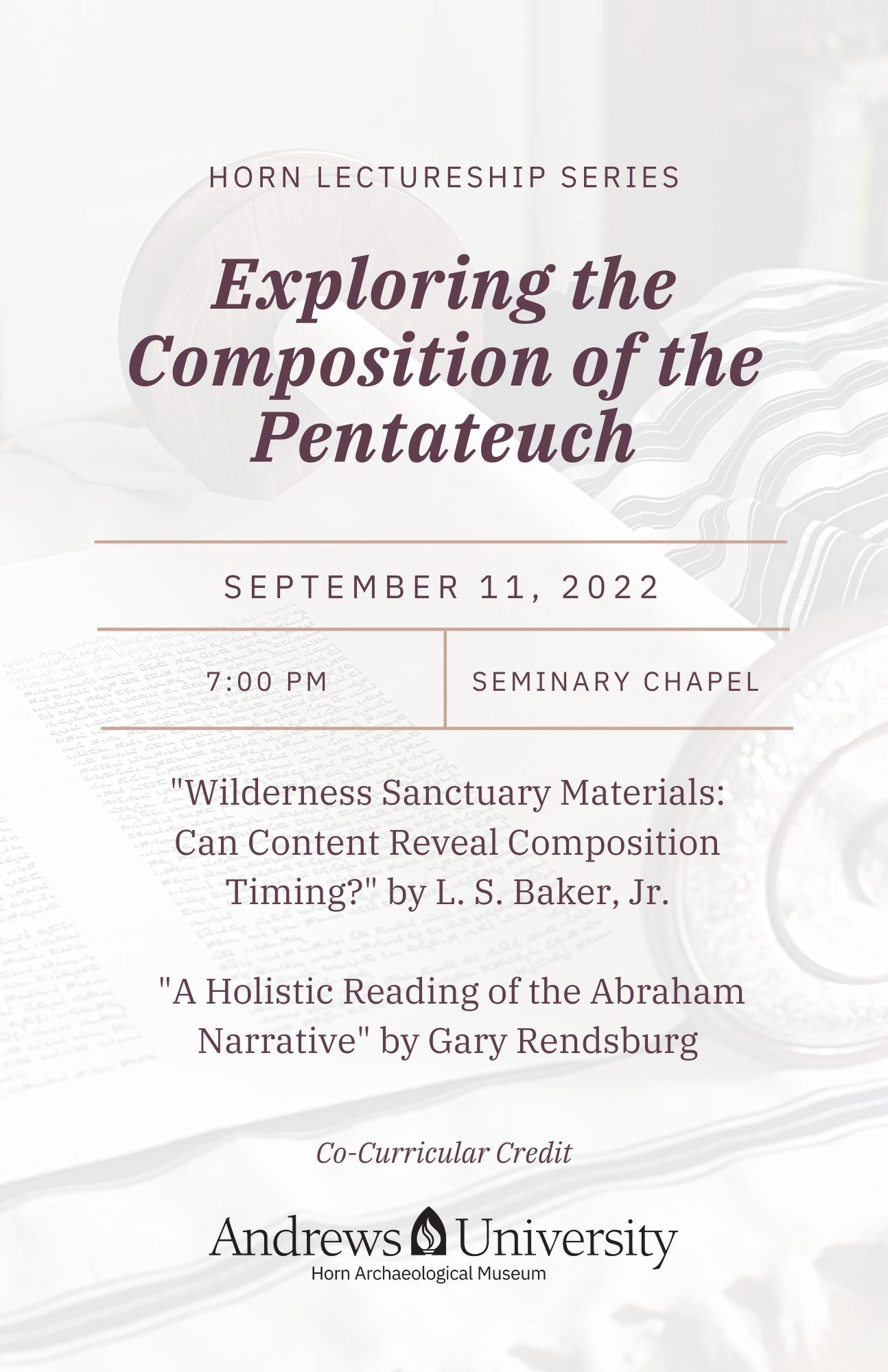The Liturgical Function of Dates in the Pentateuch
Presenter Status
Pastor; Adjunct Professor of Old Testament Studies
Location
Seminary Chapel
Start Date
3-4-2016 7:10 PM
End Date
3-4-2016 8:00 PM
Session
Literary and Historical Studies
Presentation Abstract
Specific dates are rare in the Pentateuch. In fact, there are only twenty-one dates included in the Pentateuchal narratives. (Dates included in festival lists, like Lev. 23:4–43 and Num. 28:18–29:40, are not included in that count.) However, reconciling these dates with one another to form a coherent, historically viable timeline has proven difficult. It has become convenient, therefore, to regard the Pentateuch’s various dates as the vestiges of unharmonized traditions. In this paper, each date within the narratives of the Pentateuch will be examined and shown to identify the event where it appears with a liturgically significant moment in the Hebrew festival calendar. The thesis emerging from this finding is that dates in the Pentateuch are not provided for historical data and should not be expected to form a coherent timeline. Instead, dates in the Pentateuch serve a liturgical purpose, reflecting a liturgical interest behind the compilation of these narratives.
Biographical Sketch
Michael LeFebvre is the pastor of Christ Church Reformed Presbyterian in Brownsburg, Indiana; an adjunct professor of Old Testament Studies at the Reformed Presbyterian Theological Seminary; and a fellow with the Center for Pastor Theologians. Michael received his PhD from the University of Aberdeen, and is the author of several books such as Collections, Codes, and Torah: The Recharacterization of Israel's Written Law, and Singing the Songs of Jesus: Revisiting the Psalms. He is also a contributor to the Oxford Encyclopedia of the Bible and Law. Michael's most pressing theological duty, however, is answering questions as a father, with his wife Heather, of five children between the ages of 5 and 15.
The Liturgical Function of Dates in the Pentateuch
Seminary Chapel
Specific dates are rare in the Pentateuch. In fact, there are only twenty-one dates included in the Pentateuchal narratives. (Dates included in festival lists, like Lev. 23:4–43 and Num. 28:18–29:40, are not included in that count.) However, reconciling these dates with one another to form a coherent, historically viable timeline has proven difficult. It has become convenient, therefore, to regard the Pentateuch’s various dates as the vestiges of unharmonized traditions. In this paper, each date within the narratives of the Pentateuch will be examined and shown to identify the event where it appears with a liturgically significant moment in the Hebrew festival calendar. The thesis emerging from this finding is that dates in the Pentateuch are not provided for historical data and should not be expected to form a coherent timeline. Instead, dates in the Pentateuch serve a liturgical purpose, reflecting a liturgical interest behind the compilation of these narratives.




Images